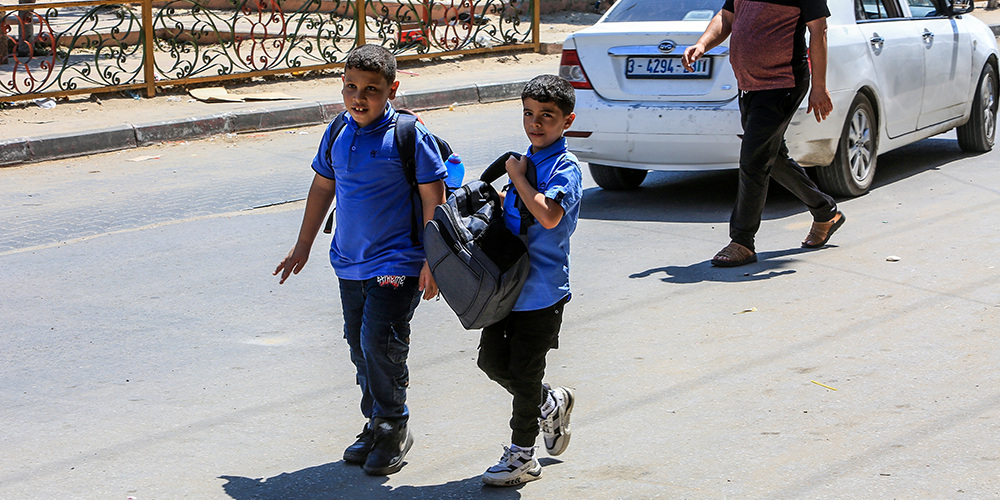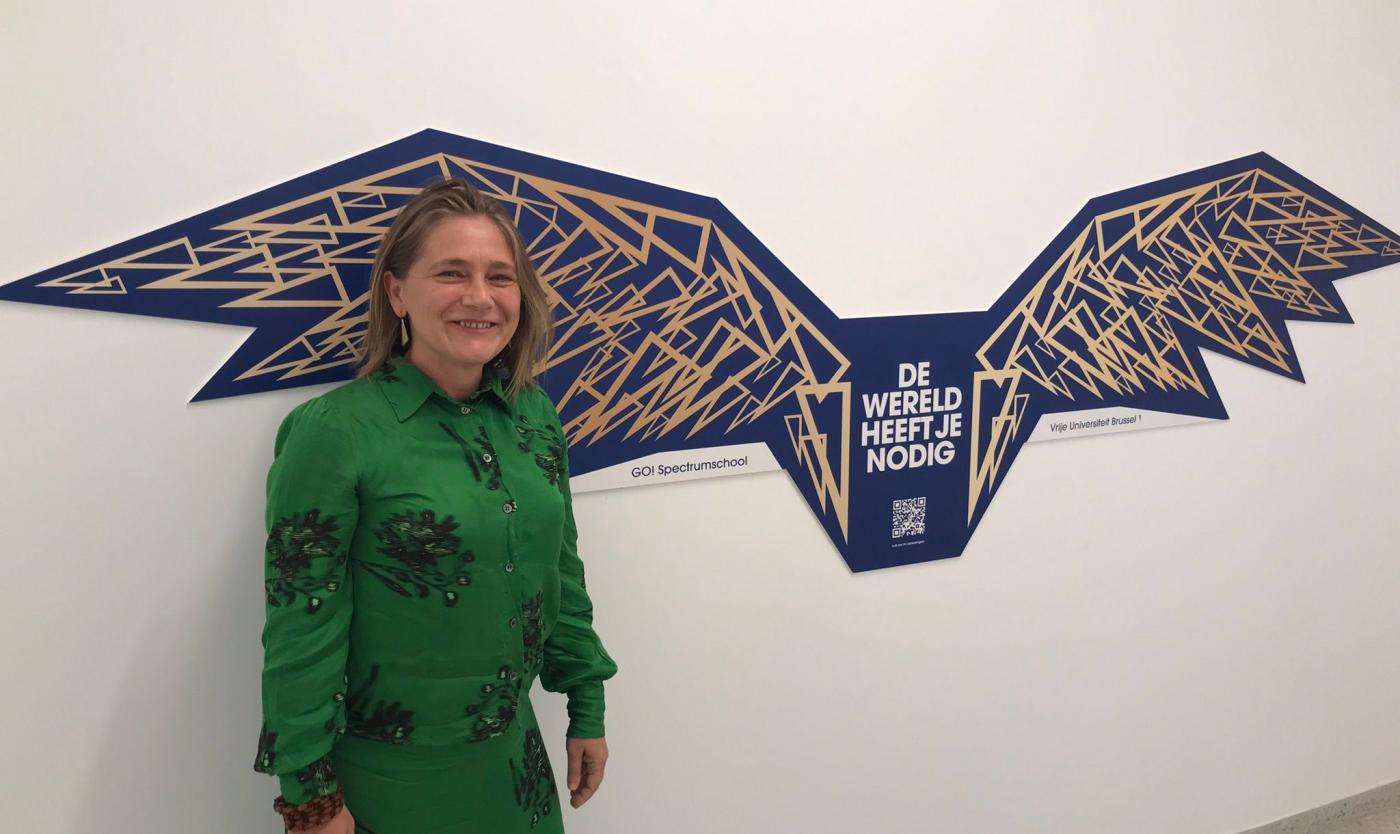
Inge Placklé is based at the Multidisciplinary Institute for Teacher Training (MILO) and mainly focuses on research into vocational education. Starting this September, she will lead a new project in collaboration with Palestinian lecturers aimed at empowering young people in vocational training and preparing them better for the job market. “The lecturers there are incredibly committed to giving young people hope for the future.”
What project has just been approved?
Inge Placklé: “The project is called Catalysing TVET Transformation: Faculty Innovation in Curriculum Design and Stakeholder Collaboration. The aim in Palestine is to strengthen vocational and technical education by investing in teacher training, new technologies, and partnerships with the business world. The idea came from colleagues in Palestine themselves—people who teach and conduct research there.”

MILO professor Inge Placklé is the lead researcher for the project
What’s the current situation in education in Palestine?
“We see teachers who are deeply motivated and determined to keep going. They’re committed and now mostly rely on online teaching. That’s far from easy in vocational training, but they’re doing everything they can to give young people a sense of hope.”
“It’s admirable how hard teachers are working to give Palestinian youth every opportunity”
Can young Palestinians still find hope?
“That’s hard to say, especially since I haven’t been there yet and haven’t spoken to the young people themselves. But what I do admire is how dedicated the teachers are to improving vocational education, to give students real opportunities. I think that gives the learners courage too. We hope that with stronger, more powerful curricula, these students will be more engaged and better equipped to enter the labour market. Youth unemployment is shockingly high.”
What’s your concrete approach?
“I can’t travel to Palestine, so the group of lecturers is coming to Belgium. Through a train-the-trainers course, we’ll support them in curriculum design and the use of technology in vocational education. I’ll also include insights from my other research on partnerships with businesses. To tailor everything to their needs, they’ll first carry out a needs analysis. We’ll use that to shape a training programme that really fits their context.”
How involved are the partners in Palestine?
“There’s a group of eight lecturers and two professors who helped write the project proposal. They’ve got the full support of their institution and the Ministry of Education, so the commitment is definitely strong.
Once they return to Palestine, they’ll work with other teachers to shape more powerful learning environments and share their insights. We also hope to include students’ voices as much as possible. At the same time, we’re setting up an online collaborative platform so we can keep working with both students and teachers, even after the two-year project ends. We also want to make sure the links between education and the business world are built to last.”
What do you see as the role of business in this?
“There’s a clear need. Right now, the connection with industry is too limited, and that’s something we really want to improve. We’re exploring how to make that happen. One of our PhD students has developed a framework that can help guide that collaboration. We’re especially highlighting the win-win for businesses: they benefit too when students are well-prepared and education aligns better with what’s needed in the workplace.”
“It’s about high-quality education that gives every learner a fair shot—while also meeting the needs of the labour market”
‘Leave no one behind’ is an important part of this project too.
“The teachers in Palestine are deeply committed to that principle. They want to create an inclusive learning environment that removes as many barriers as possible. That means being responsive to students’ needs, embracing diversity, and turning it into an asset. Every learner should be given every chance.”
Are you working with other Belgian partners as well?
“We’re focusing on ‘graduate programmes’, which sit between secondary school and a bachelor’s degree. That’s why PXL University of Applied Sciences is involved—they offer these types of courses and have strong expertise in technology. Part of the training will happen there, especially as they work with 360° cameras, which we’ll also purchase and help implement in Palestine.”
“We’re also drawing on MILO’s own expertise. One colleague just completed her PhD on setting up cross-school learning networks, and we’ll be bringing that approach into this project too.”
How will the project contribute to long-term, structural change in Palestinian education?
“Investing in education is one of the most sustainable things you can do. These teachers will take what they’ve learned and apply it in their own context. I also believe students will be better prepared for the job market, will experience more engaging learning journeys, and gain a stronger sense of future. It’s about high-quality education that gives every learner real chances—and helps build a stronger labour market too.”
“Right now, it’s about survival there. So if we can offer Palestinian youth even a glimpse of a better future, we’ll gladly do our part.”
What personally motivated you to lead this project?
“At VUB, we talk a lot about The World Needs You, and I really believe this project fits that message. If we can help improve education quality, even in a small way, that’s a big reason for me to do this. And it aligns perfectly with my research right now—on business partnerships in vocational education and how to build strong learning environments.”
What do you still hope to achieve with the project?
“My hope is that we can reach the goals we’ve set. But we also know how difficult the situation is. It’s hard to predict what lies ahead, but I hope the young people keep believing, and that the teachers continue showing the same passion and resilience. They’re doing everything they can to keep education going and offer something meaningful. Of course, I hope the situation on the ground becomes more bearable. Right now, it’s about survival. So if we can offer some perspective, some sense of future—we’ll do that with all our heart.”